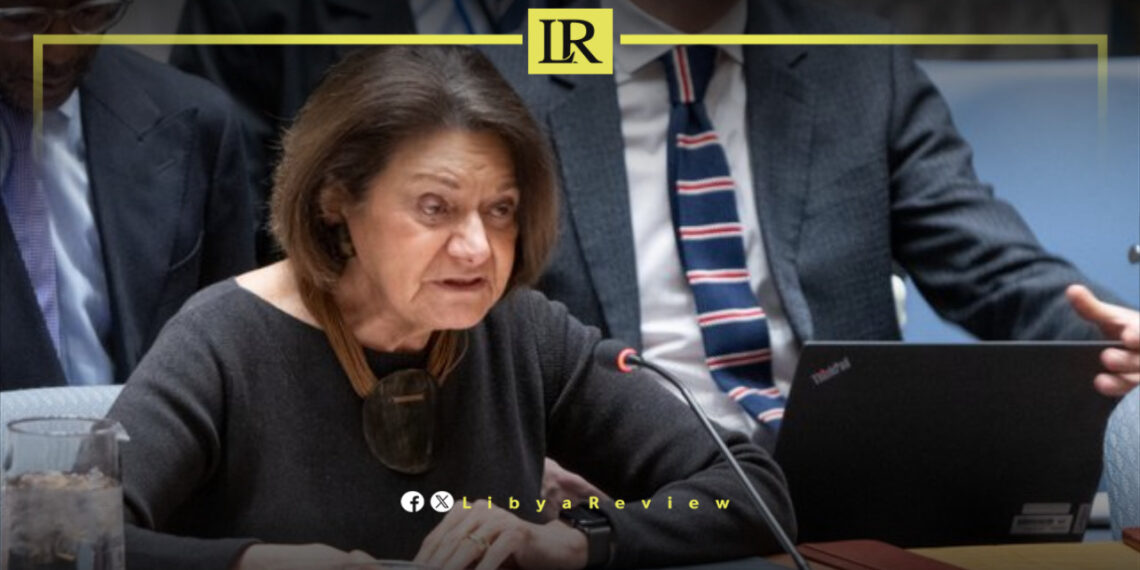On Wednesday, UN Assistant Secretary-General for Political Affairs, Rosemary DiCarlo, warned that entrenched divisions, economic mismanagement, ongoing human rights violations, and competing domestic and foreign interests continue to threaten Libya’s unity and stability.
Speaking before the UN Security Council, DiCarlo criticized Libyan leaders for prioritizing personal and political gains over national interest. She urged swift progress in political reconciliation and economic reforms, emphasizing that Libya’s fragile stability is increasingly at risk.
The UN is supporting the newly appointed Special Representative for Libya, Hanna Tetteh, who is working to break the country’s political deadlock.
The UN’s Libya Support Mission (UNSMIL) has also launched an Advisory Committee to address legislative conflicts that have blocked national elections. However, despite these efforts, rival political factions remain divided, with no agreement on a unified budget, economic governance, or a national reconciliation framework.
Libya remains split between two rival governments. The Tripoli-based Government of National Unity (GNU), led by Abdul Hamid Dbaiba, continues to control the west, while the House of Representatives-backed administration in the east, led by Osama Hammad.
Despite international efforts to push for national elections, deep political rifts and disputes over electoral laws have prevented progress. The High Council of State remains paralyzed by internal divisions, while the House of Representatives continues to amend reconciliation laws, raising concerns over the independence of future national reconciliation efforts.
The economic crisis also deepens instability. Disagreements over oil revenues, budget allocations, and financial oversight have paralyzed Libya’s economy, with the Central Bank struggling to maintain stability. The lack of a transparent and unified economic framework has further weakened public trust in Libya’s institutions.
The security situation remains volatile, with non-state armed groups and militias exerting significant control. The UN warned of increasing attacks on state officials, citing the recent armed assault on a Libyan minister’s convoy in Tripoli. The UN-brokered 2020 ceasefire agreement remains only partially implemented, leaving key provisions on security unification and disarmament unfulfilled.
The situation for migrants and detainees is deteriorating. Libya remains a key transit route for migrants heading to Europe, with many facing torture, forced labor, and inhumane conditions in detention centers run by militias and traffickers.
The discovery of mass graves in Kufra and Jikharra in February has exposed the horrific dangers faced by migrants.
According to UN reports, 93 bodies have been exhumed so far, with evidence suggesting severe mistreatment and killings by human trafficking networks. The UN has demanded an independent investigation, urging Libyan authorities to hold perpetrators accountable and improve protections for migrants.


